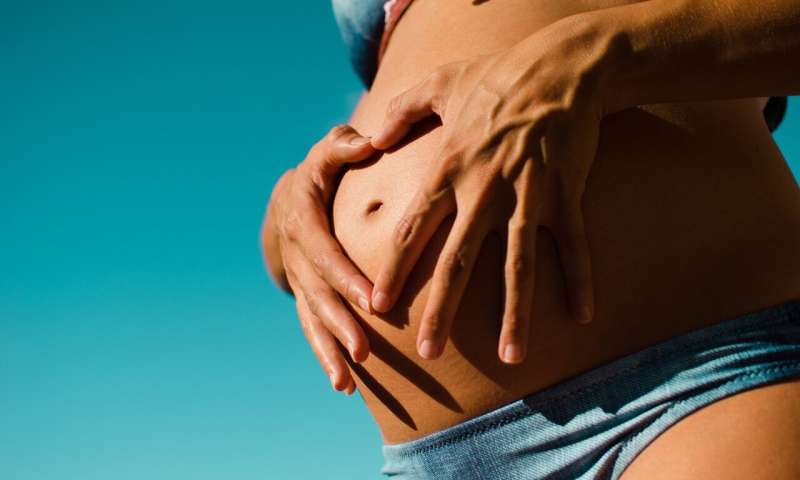Biomarkers in mother's plasma predict a type of autism in offspring with 100% accuracy

Using machine learning, researchers at the UC Davis MIND Institute have identified several patterns of maternal autoantibodies highly associated with the diagnosis and severity of autism.
Their study, published Jan. 22 in Molecular Psychiatry, specifically focused on maternal autoantibody-related autism spectrum disorder (MAR ASD), a condition accounting for around 20% of all autism cases.
"The implications from this study are tremendous," said Judy Van de Water, a professor of rheumatology, allergy and clinical immunology at UC Davis and the lead author of the study. "It's the first time that machine learning has been used to identify with 100% accuracy MAR ASD-specific patterns as potential biomarkers of ASD risk."
Autoantibodies are immune proteins that attack a person's own tissues. Previously, Van de Water found that a pregnant mother's autoantibodies can react with her growing fetus' brain and alter its development.
Machine learning identifies patterns indicating likelihood and severity of autism
The research team obtained plasma samples from mothers enrolled in the CHARGE study. They analyzed the samples from 450 mothers of children with autism and 342 mothers of typically developing children, also from CHARGE, to detect reactivity to eight different proteins that are abundant in fetal brain. They then used a machine learning algorithm to determine which autoantibody patterns were specifically associated with a diagnosis of ASD.
The researchers created and validated a test to identify ASD-specific maternal autoantibody patterns of reactivity against eight proteins highly expressed in the developing brain.
"The big deal about this particular study is that we created a new, very translatable test for future clinical use," said Van de Water. This simple maternal blood test uses an ELISA (Enzyme-Linked-ImmunoSorbent Assay) platform, which is very quick and accurate.
The machine learning program crunched roughly 10,000 patterns and identified three top patterns associated with MAR ASD: CRMP1+GDA, CRMP1+CRMP2 and NSE+STIP1.
"For example, if the mother has autoantibodies to CRIMP1 and GDA (the most common pattern), her odds of having a child with autism is 31 times greater than the general population, based on this current dataset. That's huge," said Van de Water. "There's very little out there that is going to give you that type of risk assessment."
Researchers also found that reactivity to CRMP1 in any of the top patterns significantly increases the odds of a child having more severe autism.
Future implications
Van de Water notes that with these maternal biomarkers, there are possibilities for very early diagnosis of MAR autism and more effective behavioral intervention. The study opens the door for more research on potential pre-conception testing, particularly useful for high-risk women older than 35 or who have already given birth to a child with autism.
"We can envision that a woman could have a blood test for these antibodies prior to getting pregnant. If she had them, she'd know she would be at very high risk of having a child with autism. If not, she has a 43% lower chance of having a child with autism as MAR autism is ruled out," Van de Water said.
Van de Water is currently researching the pathologic effects of maternal autoantibodies using animal models. "We will also use these animal models to develop therapeutic strategies to block the maternal autoantibodies from the fetus," said Van de Water.
"This study is a big deal in terms of early risk assessment for autism, and we're hoping that this technology will become something that will be clinically useful in the future."
More information: Alexandra Ramirez-Celis et al, Risk assessment analysis for maternal autoantibody-related autism (MAR-ASD): a subtype of autism, Molecular Psychiatry (2021). DOI: 10.1038/s41380-020-00998-8

















